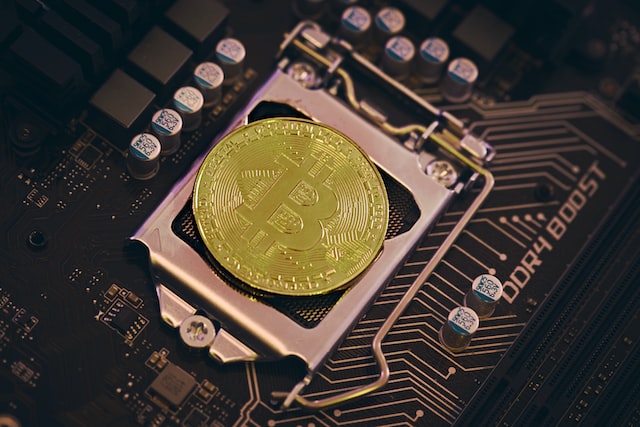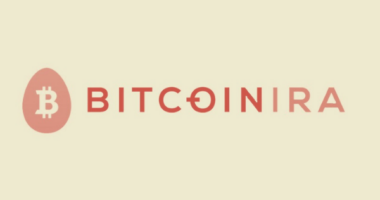Bitcoin mining is a process that involves solving complex mathematical problems to validate transactions on the Bitcoin blockchain. This process requires specialized computer hardware and software, known as a Bitcoin miner. Bitcoin miner codes are an essential part of the software that powers Bitcoin mining.
In this article, we will explore what BTC miner codes are, how they work, and why they are important. We will also provide some frequently asked questions about BTC miner codes and offer some tips for those who are interested in getting started with Bitcoin mining.
What Are Bitcoin Miner Codes?
Bitcoin miner codes are software programs that run on a Bitcoin miner. They are responsible for performing the complex mathematical calculations that are required to validate transactions on the Bitcoin blockchain.
When a Bitcoin transaction is made, it is broadcast to the Bitcoin network. Miners then compete to solve a complex mathematical problem, and the first miner to solve the problem receives a reward in the form of newly minted Bitcoin. This process is known as mining.
Bitcoin miner codes are responsible for performing the calculations required to solve these mathematical problems. They are typically written in programming languages such as C++ or Python and are optimized for the specific hardware that the miner is using.
How Do Bitcoin Miner Codes Work?
Bitcoin miner codes work by performing calculations that are designed to be difficult to solve. These calculations are based on a cryptographic algorithm known as SHA-256, which is used to secure the Bitcoin blockchain.
The goal of Bitcoin mining is to find a solution to a specific mathematical problem that is based on the SHA-256 algorithm. This problem is known as a hash. Miners compete to find a hash that is below a certain target value, which is set by the Bitcoin network.
When a miner finds a hash that meets the target value, they submit it to the Bitcoin network for verification. If the hash is valid, the miner is rewarded with newly minted Bitcoin.
BTC miner codes are designed to perform these calculations as quickly and efficiently as possible. They are optimized for the specific hardware that the miner is using, which can include specialized chips known as ASICs.
Why Are Bitcoin Miner Codes Important?
BTC miner codes are important because they are essential to the Bitcoin mining process. Without them, miners would not be able to perform the complex calculations required to validate transactions on the Bitcoin blockchain.
The Bitcoin network relies on miners to validate transactions and maintain the integrity of the blockchain. Without miners, the network would not be able to function.
Bitcoin mining is also an important part of the Bitcoin ecosystem. It allows new Bitcoin to be minted and distributed to miners, which helps to incentivize them to continue to validate transactions on the blockchain.
Frequently Asked Questions About Bitcoin Miner Codes
Can I mine Bitcoin without a miner code?
What programming languages are used to write Bitcoin miner codes?
Do I need specialized hardware to mine Bitcoin?
How much Bitcoin can I expect to mine?
Tips for Getting Started with Bitcoin Mining
- Research and choose the right hardware
- Join a mining pool to increase your chances of earning Bitcoin
- Use a Bitcoin mining profitability calculator to estimate your earnings
- Keep track of the market and adjust your mining strategy accordingly
- Be prepared for the cost of electricity and other expenses associated with mining
BTC miner codes are an essential part of the Bitcoin mining process. They are responsible for performing the complex calculations required to validate transactions on the Bitcoin blockchain. Without miner codes, miners would not be able to perform these calculations and the Bitcoin network would not be able to function.
If you are interested in crypto mining, it is important to research and choose the right hardware, join a mining pool, and be prepared for the cost of electricity and other expenses associated with mining. By following these tips and learning more about BTC miner codes, you can get started with Bitcoin mining and potentially earn Bitcoin as a reward for validating transactions on the blockchain.
Notice: Information contained herein is not and should not be construed as an offer, solicitation, or recommendation to buy or sell securities. The information has been obtained from sources we believe to be reliable; however, no guarantee is made or implied with respect to its accuracy, timeliness, or completeness. Authors may own the cryptocurrency they discuss. The information and content are subject to change without notice. Visionary Financial and its affiliates do not provide investment, tax, legal, or accounting advice.
This material has been prepared for informational purposes only and is the opinion of the author, and is not intended to provide, and should not be relied on for, investment, tax, legal, accounting advice. You should consult your own investment, tax, legal, and accounting advisors before engaging in any transaction. All content published by Visionary Financial is not an endorsement whatsoever. Visionary Financial was not compensated to submit this article. Please also visit our Privacy policy; disclaimer; and terms and conditions page for further information.











